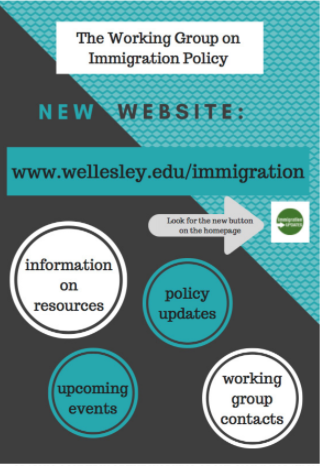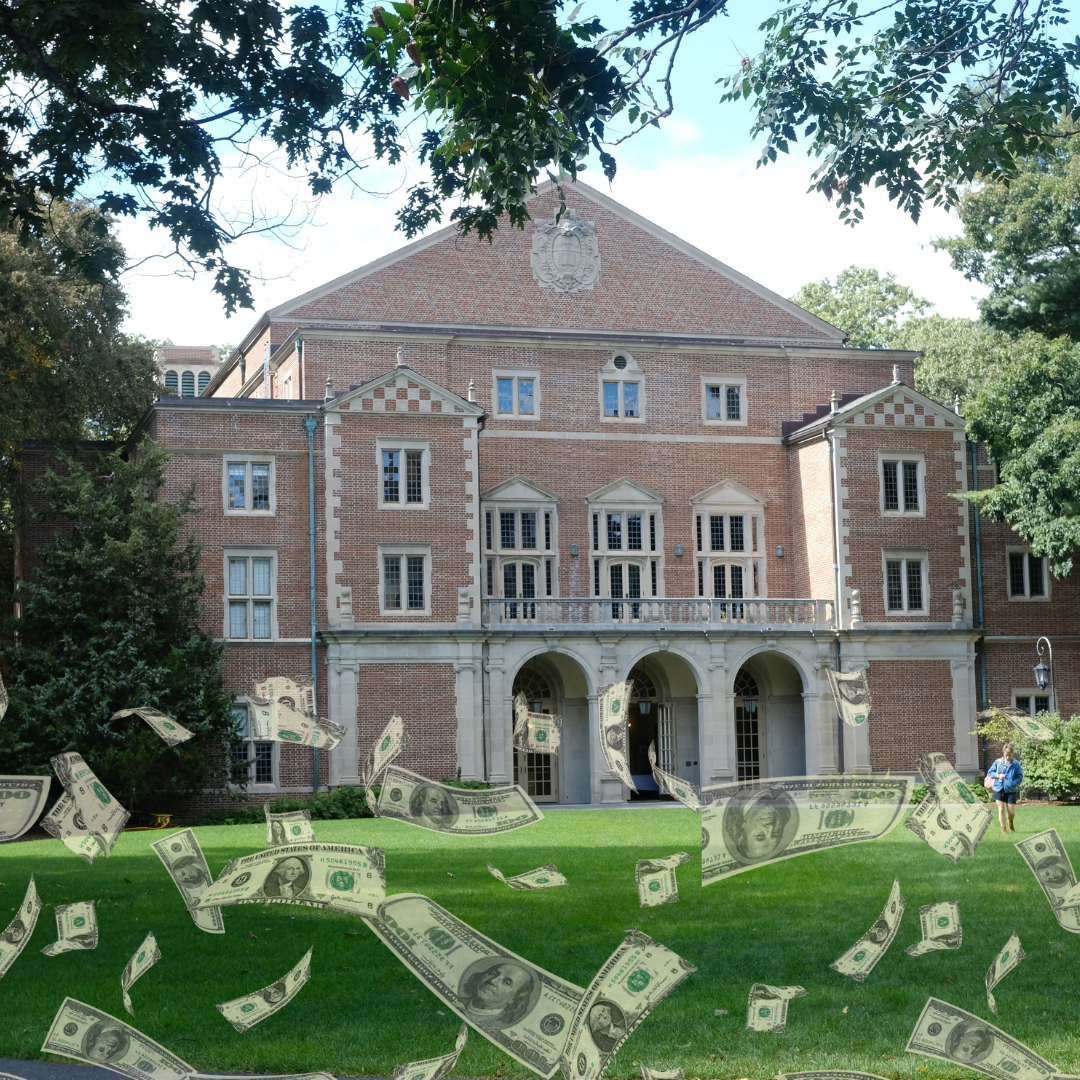In response to rising fears felt by the immigrant community and allies concerned about recent policies proposed and enforced by the Trump administration, specifically the executive order concerning refugees and immigrants, President Johnson convened a Working Group on the Effects of Immigration Policy on the Wellesley Community in February 2017.
According to a newly-added page to the Wellesley website, President Johnson convened the Working Group, which includes students, staff and faculty, to “Identify and to help the college respond to the needs of students and other members of the community who may be feeling vulnerable in light of the quickly changing political climate and regulations related to immigration and refugee status [and] advise the Senior Leadership of the College on how to best support members of the college community to uphold the commitment to a residential learning environment free from hostility and fear.”
Daniela Kreimerman Arroyo ’19, a student representative on the Working Group, added that the group has specific goals, including fostering community activism and ensuring safe community spaces by “making sure no data leaks are possible that might identify students to authorities.”
Kreimerman Arroyo also stated that their specific job as a student on the group, in addition to attending general meetings and working with a subgroup to follow policy changes, involves campus outreach and communication.
“Personally, I have contributed to remaking and revamping Wellesley’s immigration information site (wellesley.edu/immigration), to facilitating and participating in conversations with students and to writing to President Johnson about the Safe Communities Act,” they said.
Associate Professor of education Soo Hong, the chair of the Working Group, explained that since its inception, the group has worked to gather information about the members of the Wellesley community who were affected by immigration policies by meeting with several different students groups. The group has also organized and supported several different events that have taken place across campus.
On Thursday, April 6, attorney Aliya Khalidi ’07 held a town hall meeting titled “Know Your Rights” to help explain to community members what their rights are by law under new policies enacted by the Trump administration. There was also an event with the Multifaith Council called “Religious Freedom and Discrimination” held on April 12 that invited students to discuss the implications of the executive orders for religious minorities. An additional town hall titled “Understanding the Executive Order” was also held on April 12 to help college community members understand the implications of the executive order. Furthermore, the Project for Public Leadership held an event called “Building Connections between Campus and Community” on April 18 to introduce community local community organizers to the campus and highlight current community initiatives and partnerships. Finally, on April 25, Shannon Al-Wakeel from the Muslim Justice League facilitated a workshop called “Cross Movement Solidarity” to help emphasis the importance of cross-community relationships.
Hong explained that the Working Group is very happy with how the events have gone but hopes to draw more people from across campus, especially those who aren’t directly impacted by policy changes.
“We sincerely hope that these events draw all members of the community to them—not just those who may be directly impacted. We certainly feel that when some in our community feel threatened or vulnerable to attack, it is an issue that invite our collective interest,” she commented.
In the coming semester, Hong explained that the goal of the Working Group is to promote their visibility on campus and to create connections to the campus. Additionally, the group would like to continue to explore ways to provide support for immigrant and refugee community members and engage with other institutions of higher learning.
“We have already started thinking about the fall, and while our plans will have to be responsive to what transpires over the summer, we are currently planning on inviting a group like MIRA or Movimiento Cosecha to discuss some of the local and national campaigns to support immigrants’ rights. An event like this could be a mix of information-sharing, training on rights and/advocacy in this area and a way to encourage community members to join local efforts,” Hong said.
Additionally, Hong explained that the Working Group is attempting to reach out to faculty about in-classroom conversations about the impact of the executive order and other policies.
“Many students have also told us that they would like to be able to discuss and engage these issues in the classroom as well, and they have shared the ways that faculty have encouraged this kind of discussion or provided support to them. We as faculty are sometimes curious about the ways we can do this more effectively—how do we acknowledge and address the questions that students have about what’s happening around us? We’d like to plan a faculty conversation on this and we will do so in the fall in conjunction with the Provost’s Office,”she explained.
Kreimerman Arroyo added that there are many resources for students who want to get involved in the Working Group or work on awareness of immigration and refugee populations in general.
“[Reach] out to me or to anybody on the working group that has agreed to be contacted (Soo Hong, Maed Alicea-Westort, Robbin Chapman, Catia Confortini, Tricia Diggins, Michael Jeffries, Missy Shae, Karen Pabon, Robin Cook-Nobles and Tiffany Steinwert) with any concerns you might have! If you want to be a part of the group, I would suggest reaching out to Soo Hong or the SOAC appointments coordinator,” they said.






